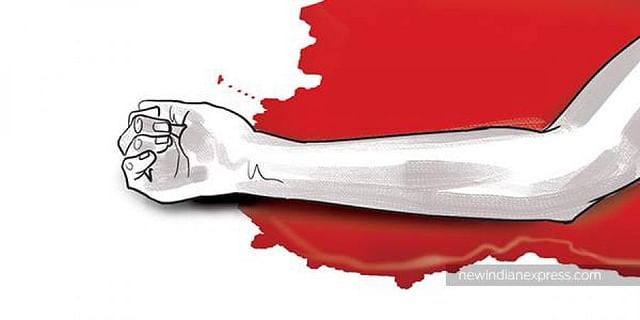
Saudi Arabia is set to announce major labor reforms that could effectively end its controversial “kafala” system for foreign workers, a news outlet close to the government reported.
Foreign employees will no longer require their work sponsor’s permission to change jobs, travel abroad or leave the country permanently, the online Maaal newspaper reported, citing unidentified sources. The new rules are scheduled to be unveiled as early as next week and will come into effect from the first half of 2021, according to Maaal.
In response to the report, the kingdom’s Ministry of Human Resources and Social Development said on Twitter it was “working on a number of initiatives to organize and develop the labor market, and will announce them when they’re ready.”
The ministry is set to hold a press conference next week to outline reforms to “increase the competitiveness, attractiveness, and flexibility of the Saudi labor market in accordance with international standards,” according to an invitation sent to journalists.
The changes, if applied as Maaal described, could have a dramatic effect on the kingdom’s labor market and the lives of more than 10 million foreign residents. The so-called “kafala” or “sponsorship” system, which was used for expatriates in Gulf Arab countries for decades, has been criticized at home and abroad as a form of indentured servitude. Some economists argue it also entrenches an imbalanced labor system, where private employers hire cheaper and more easily exploitable foreign workers even as Saudi unemployment rises.
Under the existing system, foreign workers in Saudi Arabia must be tied to a sponsor whose permission they need to change jobs, open a bank account, leave the country on vacation or even to replace a lost ID. Several neighboring countries have taken steps to reform kafala without fully ending it.
Overhauling labor rules could give Saudi Arabia a public relations boost as it prepares to host this year’s summit of the Group of 20 industrialized economies. It would also aid Crown Prince Mohammed bin Salman’s efforts to make the kingdom more attractive to foreign talent and investment, part of his “Vision 2030” economic transformation program.
But changing conditions for foreign workers is a politically sensitive topic in a domestic climate where nationalism and xenophobia are rising. Roughly a third of the kingdom’s population is foreign, and with citizen unemployment a persistent problem, some Saudis argue that expatriates are pushing them out of the labor market.
The Maaal report stressed that “Saudi citizens are the first to be harmed by the kafala system,” laying out how the current rules contributed to citizen unemployment.
The labor reforms were originally due to be disclosed in the first quarter of this year, but were delayed by the pandemic, it said.
Maaal reported in February that the government was preparing to end the kafala system, drawing criticism from some Saudis on social media. The government later issued a denial. This time, reaction on social media has been more mixed, with some Saudis saying it was necessary to reform and others saying it would hurt jobless Saudis and give foreigners too much power.



